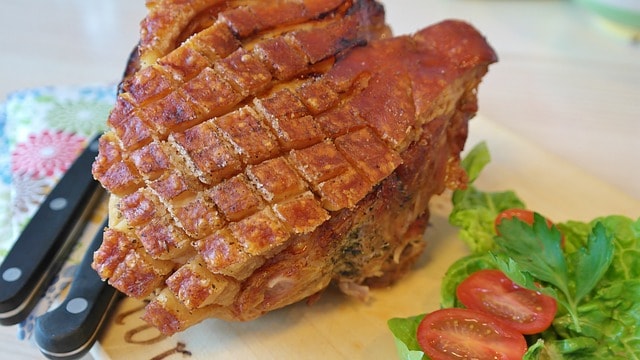What You Eat Matters, When You’re Trying to Build Muscles
When it comes to building muscles, consuming protein is critical. Not only is it needed to build and maintain muscle mass, it also helps aid in recovery after working out. It really is a key component to most fitness plans.
It aids in weight loss because when you have more muscles, your metabolism increases. It also keeps you feeling full for longer and helps stabilize blood sugar levels. So you want to make sure you’re eating enough of this macro nutrient.
How Much Protein is Enough?
There are mixed reviews out there, but I’ve generally found that if you’re exercising quite intensely 3-4 times a week, and you’re trying to build or maintain muscle mass, you need slightly more than one gram of protein per kilogram of your weight. So if you’re 150 pounds, or 68 kilograms, you should be aiming to consume close to 80 grams of protein a day.
What Does 80 grams of Protein Look Like?
If you consume protein in three meals daily, it actually isn’t that hard to eat enough of it.
Breakfast
For breakfast, there are a lot of selections that will get you close to 20 grams. Some of my favourite ideas include:
*Protein shake
*Two egg and veggie omelette plus a few nuts
*Cup of plain Greek yogurt with seeds and fruit
*Cup of steel cut oats with hemp hearts and fruit
Lunch and Dinner
For both lunch and dinner, ladies, consume a piece of meat that’s slightly larger than your palm, and guys you need to eat two palms’ worth of meat. Add in a half a cup of beans or quinoa and you’ll definitely be getting the remaining protein you need in a day. Nuts and Greek yogurt are great snacks you can eat if you don’t feel like consuming meat at both lunch and dinner.
Vegetarians
If you’re a vegetarian, there’s no need to worry. For lunch and dinner, be sure to consume either a palm-sized serving of tofu, or a cup of lentils, beans or quinoa. Add hemp hearts, seeds or nuts into both meals and you’re set!
See, it’s easy to eat enough of this macro nutrient no matter what your diet is. One of the keys I try to follow is variety. I like to consume a combination of animal and plant-based forms of protein most days.
How Do Protein Requirements Change as We Age?
Unfortunately, as we age, we don’t absorb protein as well so we have to eat more of it in our later years. Many experts recommend if you’re over the age 65 you should consuming two grams of protein per kilogram of body weight. Meaning, a 68 kilogram / 150 pound person should be consuming 136 grams daily. This is equivalent to eating four large chicken breasts a day – a lot more than most of us are consuming!
As we age, supplements, like protein powder, are a handy way to increase consumption of this critical macro nutrient. Another alternative is to add nutrient-dense foods like hemp hearts, ground flax or chia seeds into all meals.

To Sum it Up…
Consuming enough protein is important because it’s required to build and maintain muscle mass. It also keeps us feeling full for longer and helps stabilize blood sugar levels.
Most of us function well with eating just over one gram of protein per kilogram of our body weight. This isn’t an overly large amount, as you can see from reviewing the meal suggestions I’ve highlighted above. However, it’s important to note that as we age, we need almost double this amount, making supplements a potential option.
What’s your favourite way to get your protein in?


Trackbacks/Pingbacks